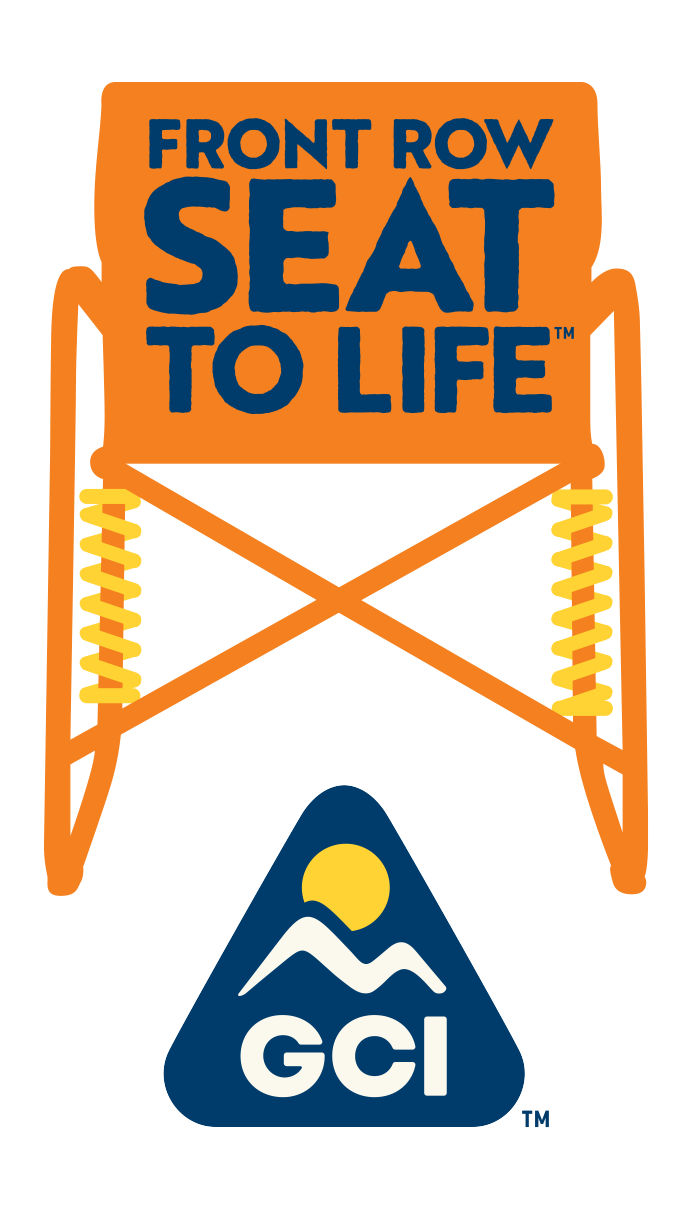Take your camping to the next level—the roof! Rooftop tent camping is growing in popularity, and it’s easy to see why. Thanks to a smooth, flat sleeping surface, car tent camping can be far more comfortable than ground camping. Our favorite rooftop tents have built-in mattress pads which are typically larger than those you’d put in a tent, making the camping experience cozier and roomier. Plus, rooftop camping is just plain fun!

CVT rooftop tents set up alongside GCI Outdoor chairs and cook stations make for the perfect car camping trip in Lake Powell.
Making Your Car Tent Camping Packing List
Luckily, the packing list for a rooftop camping trip can be very similar to that of a traditional camping trip. Here are some key differences to consider:
- Bedding: Rather than inflatable mattresses and bulky sleeping bags, opt for down-stuffed bedding. Because these items fold down to a compact size, they can be kept right in the tent when it gets closed up, saving space inside your vehicle.
- Lighting: String up some battery-operated lights inside the tent. Not only will this create a warm ambience, it will prevent you from having to fumble around for a flashlight when nature calls in the middle of the night. (You’ll need to go down the ladder first, so lighting is extra important here!)
- Portable fan: For warm-weather camping, a rechargeable or battery-operated fan can help keep you comfortable at night. Look for one that can be hung up, and you can mount it to the tent’s ceiling. Many fans have built-in lights as well for added convenience.
- Stool or stepladder: If you are short or have children along on the trip, a few steps will give just the boost you need to make accessing the rooftop tent easier.
- Camp chairs: You’ll most likely want to leave the rooftop tent for sleeping, and create a cool and comfortable campsite spot for hanging out. In this case, a couple of ultra-smooth rocking chairs and an awning or portable umbrella are just the pieces you need. To make cooking more convenient and eating more comfortable, a compact folding table is another perfect addition.

GCI ambassador Doris Wang relaxes in a MaxRelax Pod Rocker™.
Finding the Perfect Spot
One of the best things about rooftop tent camping is how many more campsite options it gives you—so there’s no need to make an expensive reservation at a crowded campground or RV park. In a dispersed camping area, you can park off the beaten path (usually for free!) and experience the wilderness like never before.
In any area where you can legally park overnight, look for a level surface free from large rocks and roots. The ideal spot will have bare, tightly packed ground. Avoid parking close to or underneath trees that wildlife could potentially climb to access your tent. (Whether you’re in bear, lion, or snake country, a rooftop tent will keep you better protected from animals than a ground tent—but to be on the safe side, food should still be stored elsewhere.)
Once you’ve found the perfect spot, it’s time to get set up. As with traditional camping, it’s best to set up your campsite and get oriented with the area before it gets dark. Many people find it easier to open a rooftop tent than to pitch a ground tent, but teamwork is still the secret to success here, so work with a partner, if possible.
Getting Comfortable in Any Weather
Rooftop tents have another clear advantage over ground tents, and that’s the protection they offer from inclement weather. Their sturdy fabric offers shelter from rain and snow, while keeping you drier and warmer than you would be on the ground. If there’s a strong wind or storm, you can orient your vehicle as needed to maximize your protection and comfort.
You can also give winter rooftop tent camping a try, if you’re brave enough! While ground camping trips in the winter might be unbearable—if not impossible—in many regions, a rooftop tent makes outdoor adventure possible in all seasons. Check the weather forecast to ensure you’ll be able to access your campsite (and to leave it at the end of the trip). Adjust your packing list to include warmer layers, extra blankets, and a mattress topper for more insulation, then give yourself extra travel time and arrive early enough to build a campfire.

GCI ambassadors Derek & Erica stay warm by the fire.
Packing Up for the Day
After a night spent in a rooftop tent, even diehard early birds should plan to linger a little longer over breakfast. You should never close your tent up while it’s wet—as it typically will be, thanks to the morning dew. Wait for the sun to come up and let the dew completely evaporate, and you’ll avoid damaging mold which can destroy the tent’s fabric as well as your bedding.
Use this extra time to double- and triple-check your rooftop tent’s storage pockets, making sure that everything you need for the day has been removed. There’s nothing worse than being ready to hit the road and realizing your keys are in the collapsed tent!
Should You Make the Leap to Rooftop Tent Camping?
Are you on the fence about car tent camping? If you already have a large vehicle, this is a great way to utilize it! And while rooftop tents are a hefty upfront investment, they’re much less expensive than purchasing an RV, so this can actually be a cost-effective way to hit the road for a long-term trip. Even if you’re more of a weekend warrior, you may be surprised at how much you’ll end up using your rooftop tent—after all, waking up with less stiffness and soreness means you’ll want to take more trips!






